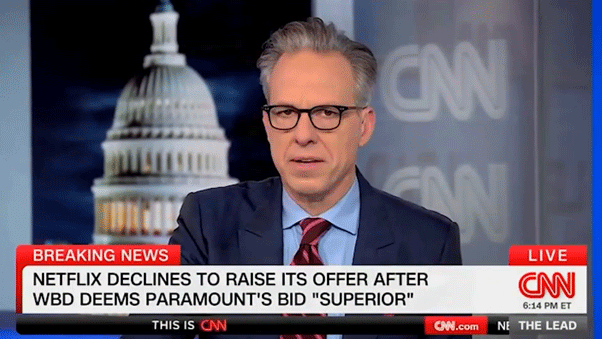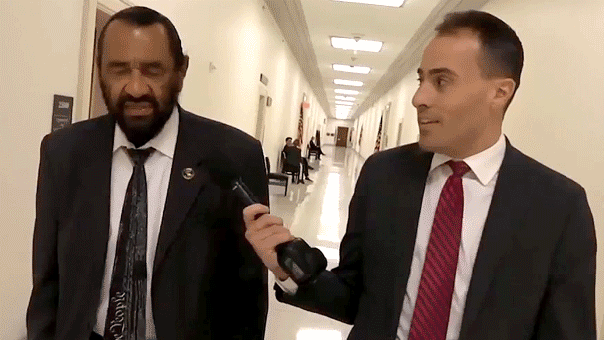David Pecker to continue testifying in Trump trial
Fox News legal editor Kerri Kupec Urbahn joined 'Fox & Friends' to discuss her key takeaways from Trump's trial in New York City as a judge is set to decide whether the former president violated his gag order.
Manhattan District Attorney Alvin Bragg's case against former President Trump is a "historic mistake," a law professor argued in an opinion piece published Tuesday.
In a New York Times guest essay, Boston University law professor Jed Handelsman Shugerman argued Bragg was overreaching in his attempts to try a federal election crime under New York state law. He said the Manhattan's DA allegation against Trump was "vague" since the prosecution failed to specify "an election crime or a valid theory of fraud."
Trump faces 34 counts of falsifying business records in relation to alleged hush money payments made to pornography actress Stormy Daniels prior to the 2016 election. The presumptive GOP presidential nominee returned to court Tuesday as the trial continues, Fox News Digital reported.
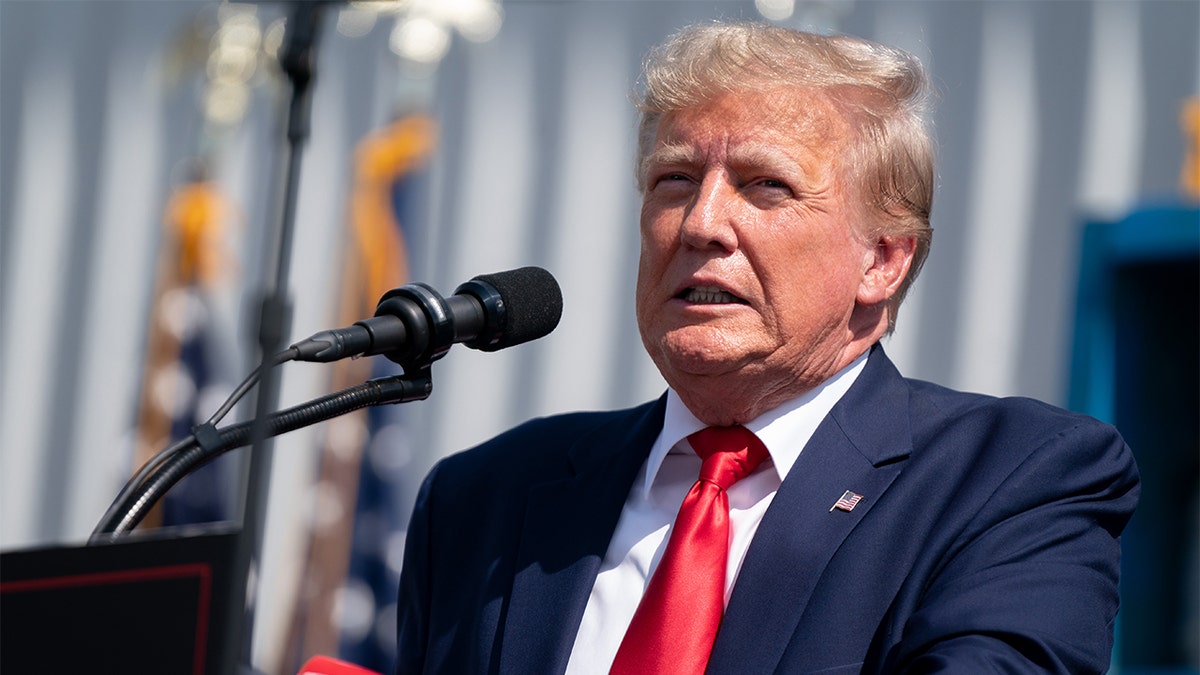
Former President Donald Trump speaks to a crowd during a campaign rally on Sept. 25, 2023, in Summerville, South Carolina. (Sean Rayford/Getty Images)
Shugerman suggested Bragg should instead center his argument around the idea that "it's not the crime; it's the cover-up" and pointed to allegedly falsified business records.
"Most of them were entered in early 2017, generally before Mr. Trump filed his Federal Election Commission report that summer. Mr. Trump may have foreseen an investigation into his campaign, leading to its financial records. Mr. Trump may have falsely recorded these internal records before the FEC filing as consciously part of the same fraud: to create a consistent paper trail and to hide intent to violate federal election laws, or defraud the FEC," Shugerman wrote.
However, the law professor noted Bragg's filing and Monday's opening statements do not indicate prosecutors were following this approach. He also conceded that his own explanation could also have "significant legal problems."
Bragg's election interference theory is "weak," Shugerman wrote. "As a reality check, it is legal for a candidate to pay for a nondisclosure agreement."
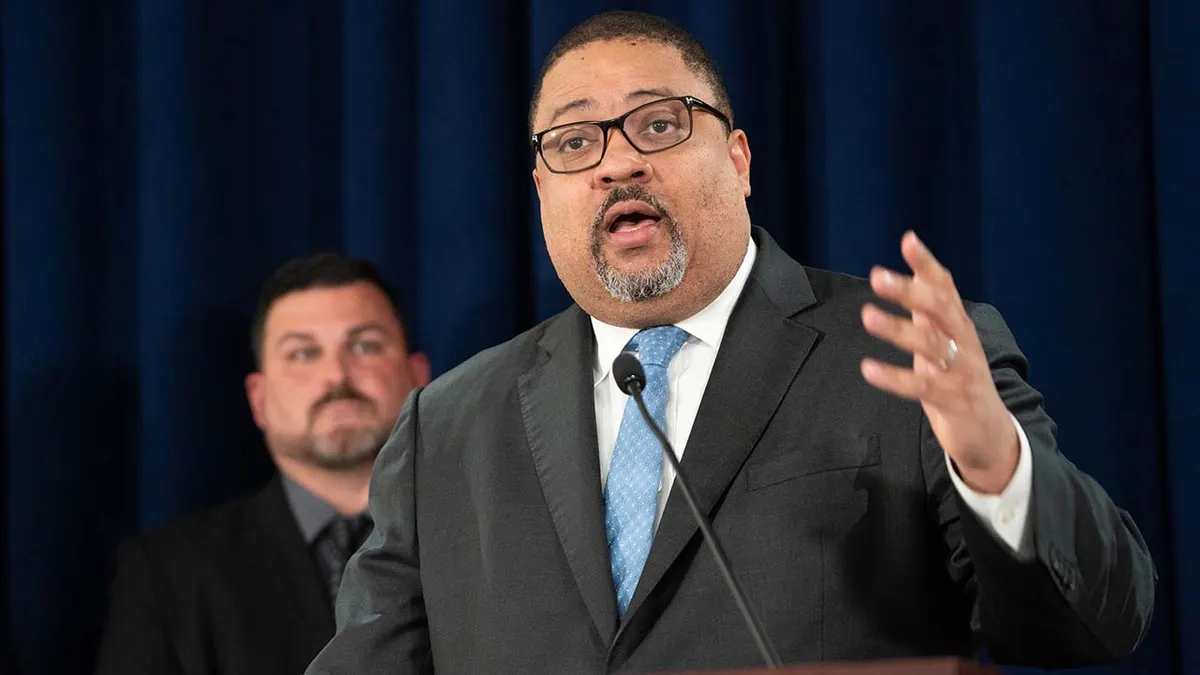
Manhattan District Attorney Alvin Bragg speaks during a news conference on Thursday, March 7, 2024, in Manhattan, New York. (Barry Williams/New York Daily News/Tribune News Service via Getty Images)
Shugerman also raised three problems with Bragg's effort to try a federal crime in a state court. The first, he wrote, was that there was no previous case of "any state prosecutor relying on the Federal Election Campaign Act," which he called an "overreach."
The second issue he raised was that the prosecutors didn't cite judicial precedents involving the criminal statute at hand.
"Mr. Trump’s lawyers argued that the New York statute requires that the predicate (underlying) crime must also be a New York crime, not a crime in another jurisdiction. The Manhattan DA responded with judicial precedents only about other criminal statutes, not the statute in this case. In the end, they could not cite a single judicial interpretation of this particular statute supporting their use of the statute," Shugerman wrote.
The third problem was that precedent in New York did not allow "an interpretation of defrauding the general public," Shugerman wrote.
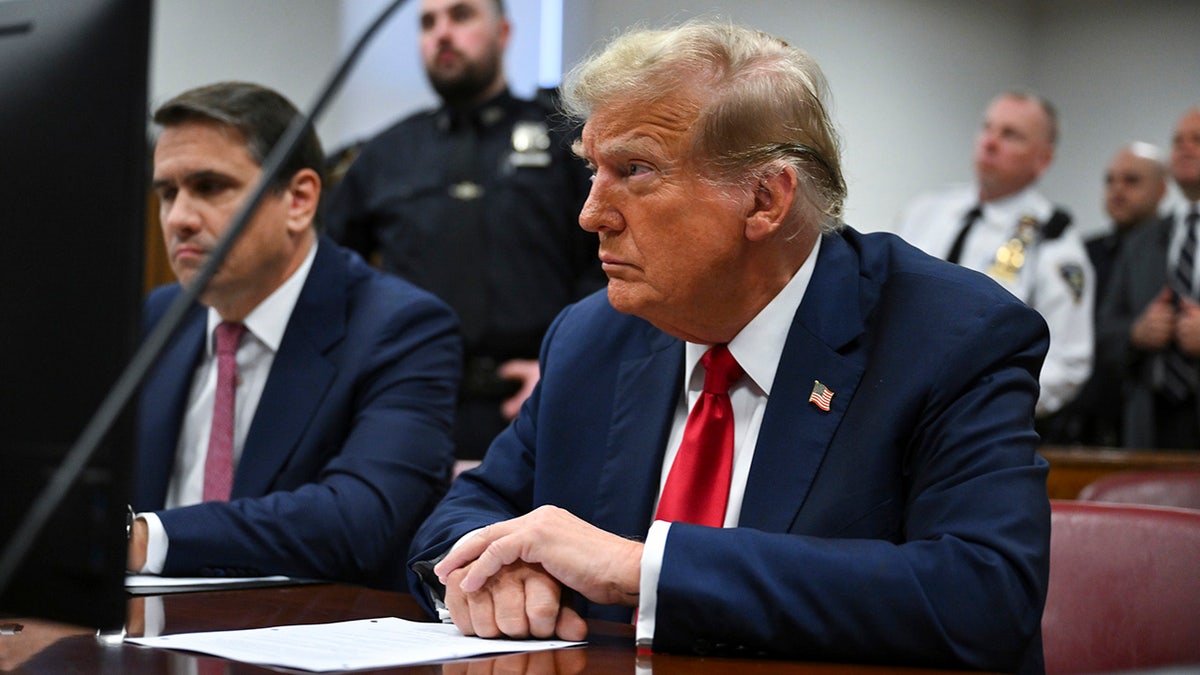
Former President Donald Trump attends the first day of his criminal trial, at Manhattan Criminal Court in New York City on April 15, 2024. (Angela Weiss/AFP via AP Pool)
CLICK HERE TO GET THE FOX NEWS APP
Shugerman said it was reasonable to question whether the case against Trump was about "Manhattan politics" rather than New York law.
"This case is still an embarrassment of prosecutorial ethics and apparent selective prosecution," Shugerman concluded, adding that Trump could win in appellate courts if he is convicted. "But if Monday’s opening is a preview of exaggerated allegations, imprecise legal theories and persistently unaddressed problems, the prosecutors might not win a conviction at all."










